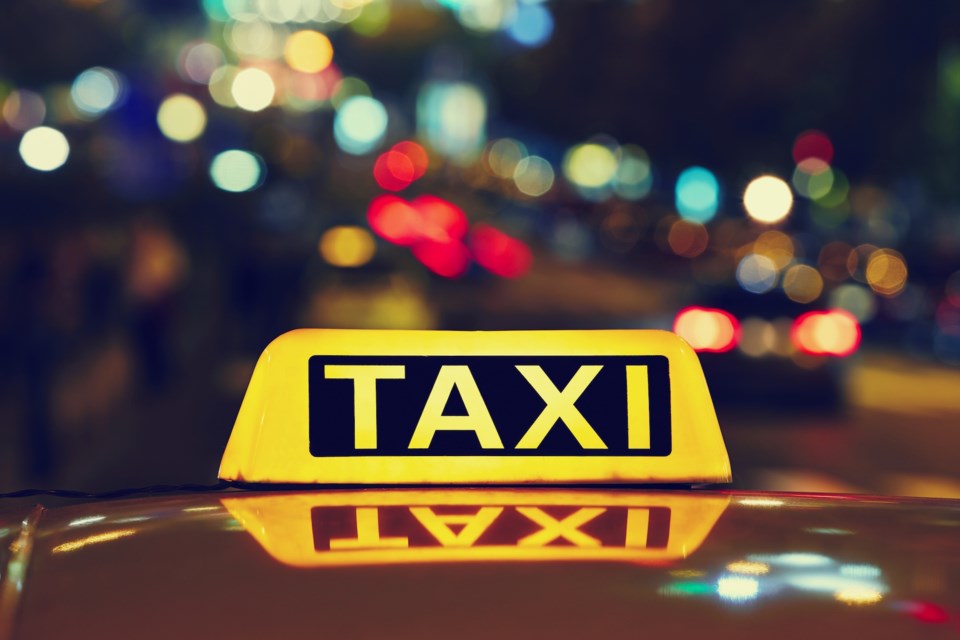A downtown club owner worries it will take a tragedy before something’s done to help late-night bar hoppers get home safely.
Geneva Event Centre owner Donald Porter said young women are being forced to walk the city’s streets after last call because they can’t get a cab home in a reasonable amount of time and there are no other options.
“I think the city is being irresponsible in making young women walk home at three in the morning,” Porter said, noting walking the city streets during the day and in the early-morning hours is a completely different experience when it comes to feeling safe and at-ease.
“Here you call a cab and it’s a two-hour wait…and you’re number five on the list,” said Porter, who added that wait times can sometimes be as high as four hours. “The whole thing’s outrageous.”
On a personal note, Porter said it’s a lot quicker for him to walk the 55 minutes from downtown to his house rather than wait for a taxi.
Porter said he suspects the long wait times are due to many of the city’s cabs being out at the casino where they would rather stay since the ride can produce a higher fare.
As well, he suspects the younger set might suffer a taxi-industry stereotype about picking up late-teen and 20-something passengers since “guys don’t want to have kids puking in their cars.”
But Orillia Taxi owner
“Everyone’s against the taxi
As well, Denault noted the
“Customers don’t know all the
But there aren’t even options for those who’ve had the foresight to appoint a designated driver to get everyone home safely when the bars have closed, according to Porter.
“The funny thing is there’s no parking downtown after midnight,” Porter said, pointing out that makes the designated driver option extremely challenging and also doesn’t encourage people to leave their vehicles if they’ve had too much to drink.
Porter said city council needs to rectify the problem.
“That council’s not really in touch,” he said. “You can tell none of them (councillors) have used a cab.”
But Coun. Ted Emond said he’s heard from a lot of people on the issue and is also disappointed with the local taxi industry; especially since the previous council lessened the regulatory requirements related to operating a city cab.
“Our taxi industry is not serving the city well,” he said. “We put a bylaw in place to reduce (red tape). We made it a lot easier for taxi companies to operate here.”
But the ongoing taxicab issue has now given rise to more debate regarding Uber and its potential role in filling the perceived void.
In fact, Studabakers Beachside manager Jenn Harvey even started a petition to get the ride-share service operating here to combat what she views as excessive taxi waiting times.
“I think allowing Uber in Orillia will help our business, restaurants and events,” Harvey wrote on the change.org petition that has garnered close to 1,200 signatures.
“I know from experience that I do not go out or to events due to the wait to get home or sometimes not even being able to get home.”
Harvey said Orillia and area consumers deserve a choice of transportation options, including ride-share programs such as Uber, which its proponents note feature options such as vehicle panic buttons and GPS trackers as well as a rating system for both drivers and passengers.
But Denault said that Uber
“If it was so simple for Uber
That said, Denault noted she
“Uber’s not going to be out
The previous city council passed a transportation bylaw last August, licensing and regulating both taxi and ride-share services in Orillia. Prior to that change, only taxi companies were regulated.
One of the most contentious parts of the bylaw, however, was the requirement of all drivers to have vulnerable-sector checks.
“(Uber) had requested several changes be made to the draft bylaw,” Shawn Crawford, the city’s manager of legislative services, told Orillia Matters earlier this month.
Crawford said the city agreed to about 98 per cent of those changes, but getting rid of vulnerable-sector checks was not one of them. Those checks are required of taxi drivers, and Crawford said the bylaw needed to be consistent among cab and ride-share companies.
Uber drivers must already undergo a criminal record check and its proponents felt the vulnerable-sector check was redundant. City staff and councillors felt otherwise.
Emond said keeping the vulnerable-sector check is essential since it determines if a person has a record or pardon for sexual offences.
“I’m quite comfortable with Uber operating in Orillia with the one condition that they (their drivers) have the vulnerable-sector check,” Emond said, adding Uber already requires its Ottawa drivers to have the check to ensure they comply with that city’s bylaws.
“I don’t see why Uber should not be required to have it here. Our rules and regulations allow Uber to operate (but) we do have a lot of vulnerable folks in our community. I believe it’s a pretty minimal expense and not a large obstacle.”
Coun. Mason Ainsworth, one of two councillors who voted against requiring vulnerable-sector screening last year, said he would welcome the issue back at the council table.
“The big thing was that we need more transportation options for people,” said Ainsworth, who encourages residents to voice their concerns to their councillors and the mayor. “We have to come up with some sort of solution.”
Porter, meanwhile, said he doesn’t have a strong opinion on the Uber debate either way.
“I’m pro going home,” he said, noting he knows of one downtown establishment owner who sometimes drives patrons home himself since public transportation isn’t readily available.
